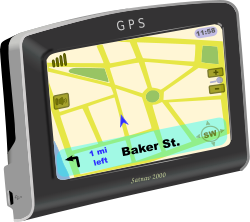Automation is especially important to solopreneurs. As the business owner of a solopreneur business, you have a lot of different things to do. Time is always at a premium, and you have to use it wisely and get a lot done in order to be successful. Automation can help you be more efficient by doing things for you. When you can set up a tool to do things for you, you save time and money as well as your mental bandwidth. Here’s a few of my favorite automation tools for solopreneurs.
- Aweber email service. Aweber is an autoresponder service, meaning people can sign up to your email newsletter, change their email address and unsubscribe without you ever doing anything. You can also set up emails to go out on a set day or on a schedule based on when the subscriber signs up. Aside from delivering your newsletter, you can use the service to help you deliver products and services.
- Mint.com bookkeeping software. This is a free software that connects with your bank account and other financial accounts (credit cards, loans, Paypal, etc) and imports the transactions so you can generate financial reports. The software will guess at how to categorize things, and at the end of the month you can go in and correct anything the software got wrong and add a category to anything it missed. Once you’ve categorized everything, you can run a variety of reports to help you manage your business. You can figure out things like how much revenue are you taking in, how much profit are you making, what are your biggest sources of revenue and what are your biggest expenses. I like this software because most of what it does is automated. You only need to intervene when it gets a category wrong or doesn’t apply a category. Neither of these things happen often.
- Social media automation tools. There are a variety of tools in this category and many of them have free options. You definitely should be on social media for your business, and you should be interacting live with your connections but some of what you do can be automated. I like the idea of having a solid undercurrent of automated posts with a healthy amount of live interaction mixed in. One of my favorite tools is Hootsuite. Hootsuite lets you pre-schedule single posts and save drafts of posts so they can be repeatedly posted. There’s loads of other features, and you can connect multiple social media accounts.
I use a lot of other automation tools, but these are a few of my favorites. Note that some of the links I share are affiliate links.
What are your favorite automation tools for your solopreneur business? Share them in the comments.







